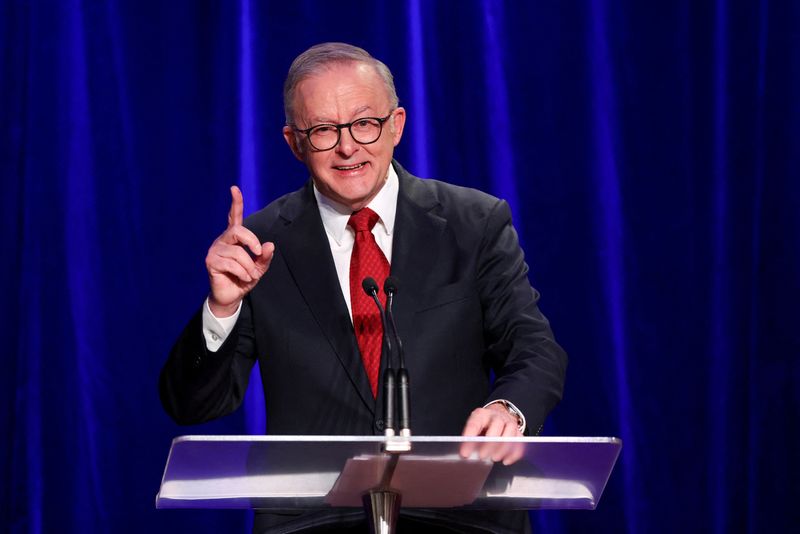On May 13, 2025, Australia’s Liberal Party elected Sussan Ley as its first female leader, following a devastating election loss on May 3, 2025, that saw the Liberal-National Coalition reduced to 42 seats from 58, while Labor, led by Prime Minister Anthony Albanese, secured a landslide victory with at least 93 seats. Ley, a moderate from New South Wales, narrowly defeated conservative rival Angus Taylor by 29 votes to 25 in a party room ballot, with Ted O’Brien elected as deputy leader. The loss, described as the Coalition’s worst in history, cost former leader Peter Dutton his Queensland seat of Dickson, prompting his exit and sparking a leadership contest.
Key Details
- Election Fallout: The Coalition’s defeat was attributed to polarizing leadership, a disorganized campaign, and “Trumpian” policies, including a controversial nuclear power push, which alienated women and younger voters. Dutton’s hard-right stance and comparisons to U.S. President Donald Trump, especially after Trump’s global tariffs and Ukraine tensions, hurt the party’s appeal, echoing Canada’s conservative losses.
- Sussan Ley’s Profile: A 63-year-old MP for Farrer since 2001, Ley has served as Health Minister (2014–2016) and Environment Minister (2019–2022). Known for her varied career as a pilot, economist, and outback worker, she resigned from the frontbench in 2016 over an expenses scandal but regained prominence as deputy leader in 2022. Her moderate stance and focus on rebuilding trust with women voters were key to her pitch.
- Leadership Vision: Ley promised a policy review, including nuclear energy and net-zero emissions, emphasizing inclusivity and collaboration over “captain’s calls.” She acknowledged the party’s failure to connect with “modern Australia,” particularly women, saying, “We did let the women of Australia down.” Her leadership aims to shift the party toward the center to regain lost urban seats.
- Party Dynamics: The contest highlighted factional divides, with moderates backing Ley and conservatives, including former PM Tony Abbott, supporting Taylor. Senator Jacinta Nampijinpa Price’s defection from the Nationals to join Taylor’s ticket stirred tensions but didn’t sway the vote. The Nationals re-elected David Littleproud as leader, fending off a conservative challenge.
Reactions and Implications
- Support: Former Liberal senator Linda Reynolds called the election a response to voter rejection, while MP Andrew Wallace emphasized Ley’s 24 years of experience. X posts celebrated the milestone, with @TheAdviserAU noting Ley’s historic win and @broomstick33 praising the rejection of “hopeless loser Angus” (@TheAdviserAU, @broomstick33).
- Challenges: Ley faces a “mammoth task” uniting a fractured party and rebuilding after losing key urban seats in Sydney, Melbourne, and Brisbane. The party’s low female representation—only 18 women MPs—prompts calls for gender quotas, a divisive issue. The Liberals must also counter Labor’s strengthened mandate and address cost-of-living concerns amid global economic uncertainty.
- Sentiment: While Ley’s election signals a shift toward moderation, some X users, like @blakandblack, called her the “best of bad choices,” reflecting skepticism about the party’s prospects (@blakandblack).
Critical Analysis
Ley’s leadership is a strategic pivot to broaden the Liberal Party’s appeal, especially among women and centrists, after Dutton’s right-wing approach alienated key demographics. Her moderate credentials and focus on inclusivity contrast with Taylor’s conservative push, but her past expenses scandal and flip-flopping on issues like Palestinian autonomy (from co-chairing Parliamentary Friends of Palestine to pro-Israel stances) may invite scrutiny. The party’s structural issues—overreliance on strong leaders like Robert Menzies and John Howard, and weak policy consultation—persist, as noted by historian Judith Brett. Without addressing these, Ley’s reforms may falter. The “Trump effect,” while a convenient scapegoat, oversimplifies deeper failures in economic messaging and voter engagement.
Ley’s success hinges on navigating factional rifts, regaining urban voters, and crafting a compelling alternative to Labor’s domestic focus. Her leadership marks a historic step for Liberal women, but the party’s path out of “dire straits” remains uncertain.
If you’d like specifics on Ley’s policies, the election’s regional impacts, or further X sentiment, let me know
